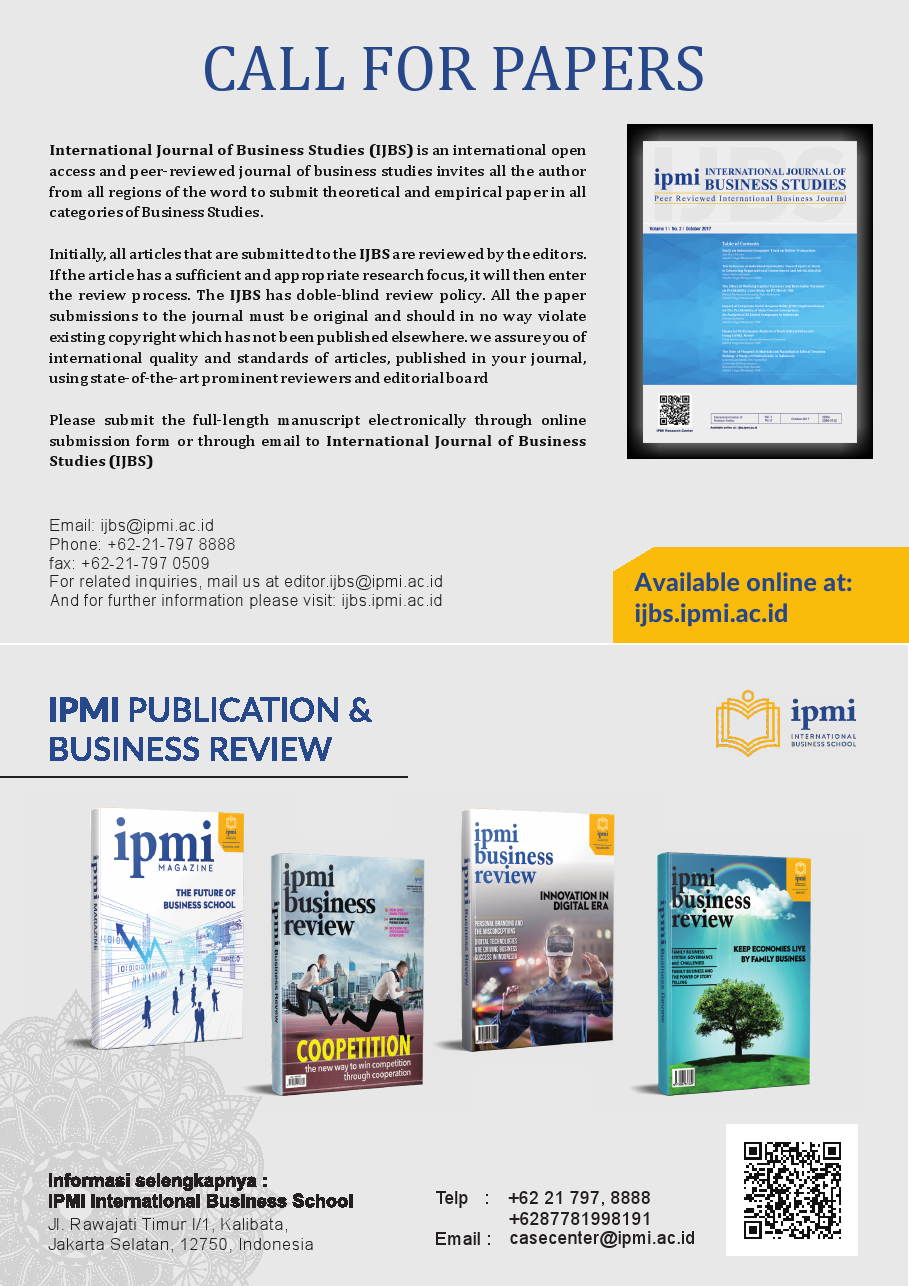The Impact of Servant Leadership on Employee Performance Mediated by Employee Loyalty and Employee Satisfaction: A Case Study of PT. Garuda Totalindo Jaya
DOI:
https://doi.org/10.32924/ijbs.v5i1.112Keywords:
Employee loyalty, Employee satisfaction, Employee performance, Family business, Servant leadershipAbstract
This study aims to investigate the relationships among the variables of servant leadership, employee loyalty, employee satisfaction, and employee performance in the context of a family business in Indonesia. This study applies quantitative approach with empirical evidence obtained from the entire employees of PT. Garuda Totalindo Jaya, a family-owned supplier spare part company as the case study. For the analysis technique, this study uses Partial Least Square (PLS) Structural Equation Modeling (SEM) as a program to run the collected data from 71 respondents during the period of July 2019. The findings of the study show that servant leadership has positive impact on employee loyalty and employee satisfaction; employee satisfaction has positive impact on employee loyalty; and employee loyalty has positive impact on employee performance. This study expands the knowledge on human resources in the context of family business in Indonesia. It should be beneficial for both researcher and also the company itself. Moreover, it can give another exposure of the future research to study more variables in term of leadership.
Downloads
Submitted
Accepted
Published
How to Cite
Issue
Section
License

International Journal of Business Studies by Sekolah Tinggi Manajemen IPMI is licensed under a Creative Commons Attribution-ShareAlike 4.0 International License.
Authors who publish with this journal agree to the following terms:
1. Copyright Transfer Agreement Form can be downloaded HERE.
2. Authors retain copyright and grant the journal right of first publication with the work simultaneously licensed under a CC BY-SA Creative Commons Attribution-ShareAlike 4.0 International License that allows others to share the work with an acknowledgement of the work's authorship and initial publication in this journal.
3. Authors are able to enter into separate, additional contractual arrangements for the non-exclusive distribution of the journal's published version of the work (e.g., post it to an institutional repository or publish it in a book), with an acknowledgement of its initial publication in this journal.
4. Authors are permitted and encouraged to post their work online (e.g., in institutional repositories or on their website) prior to and during the submission process, as it can lead to productive exchanges, as well as earlier and greater citation of published work.















